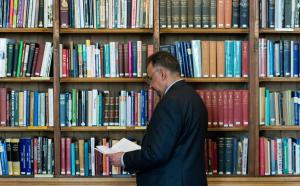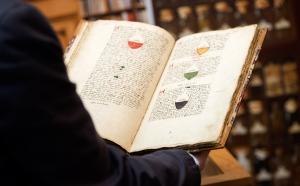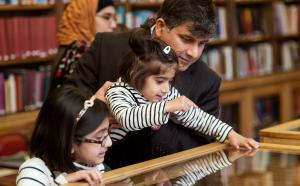
James Hamilton, the younger
(1767–1839)
College Role:
President

Notable Achievements
In 1788 Hamilton became a Fellow of Royal College of Surgeons of Edinburgh.
Hamilton was appointed to Chair of Midwifery at the University of Edinburgh in 1800.
From 1812 to 1815 Hamilton was president of the Royal College of Physicians of Edinburgh.
Key Publications
- A collection of engravings designed to facilitate the study of midwifery (1796)
- Hints for the treatment of the principal diseases of infancy and childhood (1809)
- Practical observations on various subjects relating to midwifery (1836-1837)
Biography
James Hamilton was the son of Professor Alexander Hamilton (1739–1802), the fourth incumbent of the Chair of Midwifery at the University of Edinburgh, and the grandson of a retired army surgeon who had practised in Kincardineshire, Scotland. He is referred to as ‘the younger’ to avoid confusion with the earlier Edinburgh physician James Hamilton the elder (1749–1835). It is said that Alexander Senior not only wanted his son to be a doctor but actively trained him to follow him into the Chair of Midwifery in due course. Like so many Scots of that period, he studied in Leiden and Paris, as well as attending classes for five years at St Andrews, where in 1792 he graduated MD. Before that, however, he had become a Fellow of the Royal College of Surgeons of Edinburgh in 1788 and four years later he became a Member of the Royal College of Physicians of Edinburgh. For the next 12 years he assisted his father then succeeded him in the Chair when Alexander retired in 1800.
There was much to admire about James Hamilton. He and his father founded and used a ‘lying-in’ hospital in Park Place for the poor of Edinburgh as well as for clinical instruction of his students. When invited to visit and care for a wealthy lady when a poor one needed his help, he invariably attended the latter. Small of stature with a permanent stoop, he is said to have had a harsh voice and an unsophisticated Scots accent. His lectures were legendary and, though optional because midwifery was not yet an examinable subject for the MD, were always packed. His midwifery courses, given three times a year, were attended by no less than 423 students in 1815. Their popularity and success were to spark one of the many conflicts associated with Hamilton.
In that year Hamilton submitted to the Senatus Academicus that midwifery be made a compulsory, examinable subject, something his father had long fought for. Two of his opponents, Thomas Hope and James Gregory, opposed this. In 1824 Hamilton bypassed the Senatus and went to the Edinburgh Town Council who at that time still had ultimate authority in University matters. In November 1825 the Lord Provost and town councillors ‘visited’ the Senatus and, far from discussing the matter in a diplomatic manner, simply told the academics that from thenceforth midwifery would be compulsory and examinable. The Senatus could not proceed with its planned action against Hamilton but he now had more enemies and fewer friends than ever.
The vitriolic relations between Hamilton and Gregory, men with very similar personalities, came to a head on one occasion when they met in the street. Gregory attacked Hamilton with his walking cane, was charged with assault and eventually ordered to pay a £100 fine whereupon he is reputed to have said he would gladly pay double that for the chance to thrash Hamilton again. Not surprisingly he is said to have had few friends, either professionally or socially (even his wife was persona non grata in Edinburgh society).
How he came to be elected President of the Edinburgh College (1812–1815) remains a mystery. There is no question that Hamilton made a huge contribution to midwifery and what today would be called neonatology. In his major work Practical Observations on Various Subjects Related to Midwifery (1836), he covered the anatomy and physiology of the placenta, induction of labour, haemorrhage during pregnancy, diseases of women unrelated to pregnancy, the dangers of opioids, puerperal fever and the diagnosis of pregnancy from the breast signs. Curiously, he made no use of fetal heart rate during pregnancy and delivery.
James Hamilton died in 1839, aged 71 and was succeeded in the Chair of Midwifery by James Young Simpson. He was brilliant, compassionate, knowledgeable, all his work patient-centred, but ruthless in his criticism of and contempt for any who disagreed with him for, in his mind, he was never wrong.



